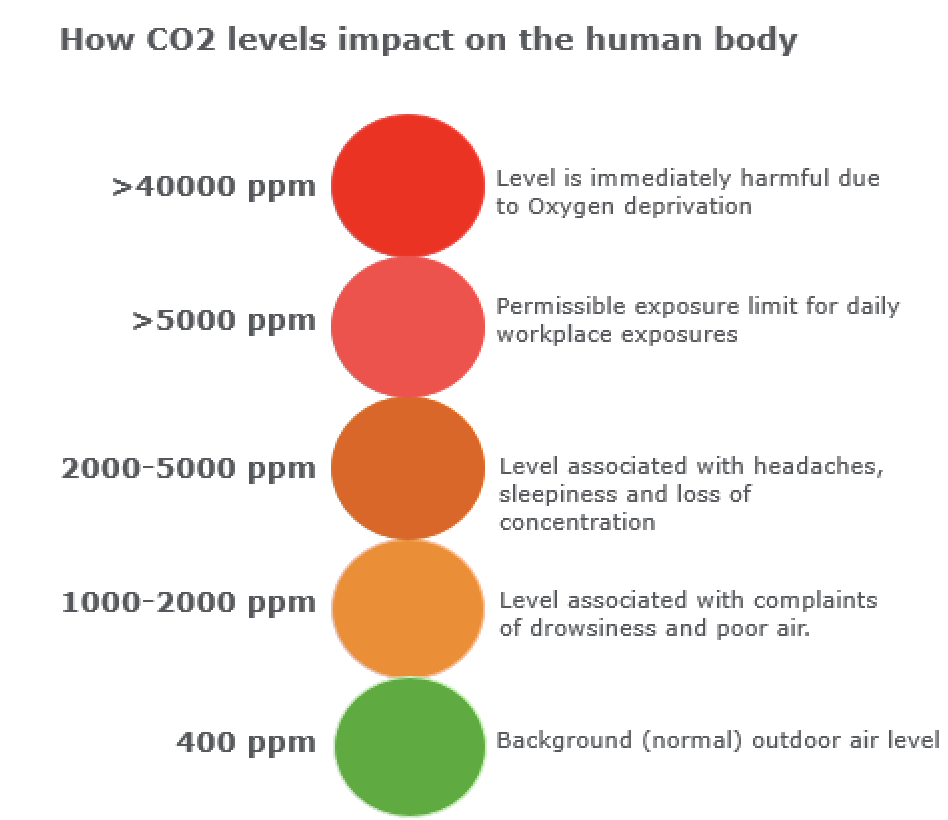
By Luca Masella, M.S.
Reading Time: 2 Minutes

Importance of Co2
Carbon Dioxide is not poisonous for human beings, in fact it’s necessary. A low Co2 content strengthens the bond between hemoglobin and oxygen, making it more difficult for oxygen to leave the blood and go to the body cells that need it. The issue with high levels of Co2 for humans is when it combines with water in the lungs. This combination forms carbonic acid, lowering the PH of blood, making the blood acidic. To compensate, the human body increases its breathing rate to take in more air volume, the blood pressure elevates, and eventually the kidney’s bicarbonate production increases. Following that, the blood vessels in the extremities constrict, reducing the quantity of blood to those body parts. Long exposure to levels higher than 40,000 ppm can be harmful and short exposure to 100,000 ppm levels can be fatal.

When does the Co2 level becomes risky?
The most dangerous time for Co2 production is during the evening hours since people usually sleep in rooms with the doors closed and there is a limited intake of fresh outdoor air. Another critical time period is during the day in offices or schools where, for several hours, larger groups of people breathe in closed spaces or rooms.
Case study 2: Production of Co2 Overnight
Anna Mainka (from Silesian University of Technology) conducted an experiment concerning children participants (a teenager and a younger child) and carbon dioxide levels during the evening hours. The results are really interesting: the average concentrations during the evening, with the doors closed, were 1,402 ppm and 1,336 ppm, respectively for the teenager and the younger child. However, the simple action of a door being opened decreased the Co2 concentration by 55% and 64% in both the teenager and younger child’s bedroom.
The high levels of Co2 resulted in bad sleep sessions making the teenager and younger child feel drowsy and dizzy.
Fresh airflow will help provide a better night’s sleep. Until Co2 levels are properly monitored and controlled, keeping a door or window open while sleeping helps to keep Co2 levels at a minimum.





